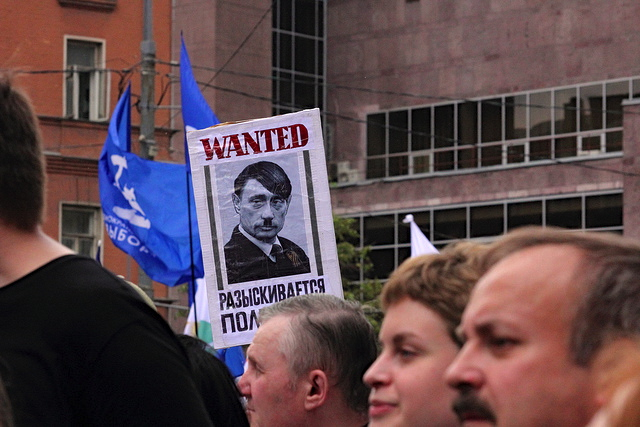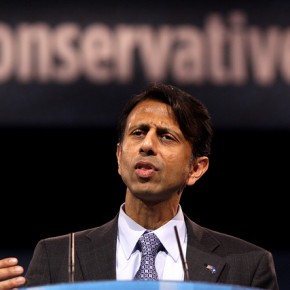It was early May in the Russian city of Volgograd. Vladislav Tornovoi, a 23-year-old man, was drinking with a couple of other guys when he made a fatal mistake. He told his drinking buddies that he was gay. By the end of that night, Tornovoi had been brutally beaten, sexually tortured and, finally, killed.
That’s a story that’s been told in many versions, and too many times. What makes Tornovoi’s death notable is the context of a hate campaign that Vladimir Putin and his compatriots in the Russian government have been waging. The recent controversy over the new Russian law that prohibits public displays of same-sex affection and the dissemination of information about the LGBT community is only the tip of the iceberg. That hate campaign and that legislation has given the green light to this kind of violence. As Russian activist Elena Zelenskaya, Vice-president of MediaUnion, a nonprofit consortium of Russian media advocating for journalistic freedom, put it: “[Our] population absolutely correctly reads the signals their leaders send them like dolphins. And the signal was dispatched: go ahead, tear into them, guys!”
That’s why leading celebrities who are also LGBT activists have taken aim at the Winter Olympic Games to be held in Sochi, Russia later this year. George Takei, the well-known “Mr. Sulu” from Star Trek, has thrown his star power behind a petition to get the Games moved to Vancouver. Though that is highly unlikely, the petition is an attempt to find a feasible solution instead of just protesting the Games.
Takei believes the law recently passed in Russia gave “license to the thugs and the hooligans, who then felt free to attack anyone that they deemed to look gay or lesbian.” He goes on to point out that there is a disturbing comparison to the 1936 Olympics held in Adolph Hitler’s Germany. “In 1936, the Olympics committee granted the rights to stage the Summer Olympics in Berlin. Three years before that, Hitler came to power and he got a law passed which seemed innocuous at that time: Jewish professors could not get tenure. But then the international stage was offered to him and he gloried in it, and it raised his status and gave him more power amongst the German people. And his campaign of horror began and you know where that led.”
Takei’s comparison is an apt one, but it’s one that shows us a historical lesson that has too often either not been learned or has been distorted. We can see this from the reaction in certain quarters to the open letter written by another actor, this one both gay and Jewish, as it happens. The British star Stephen Fry wrote the open letter to plead with Prime Minister David Cameron to boycott the Sochi Games. Cameron, of course, has made his polite (and one should not overlook, politically expedient given the currently strained relations between the West and Russia) condemnations of Russian policy but has made it clear there will be no boycott.
Fry was even more direct in his comparison to Hitler, and it has drawn some reactions we should pay attention to. He wrote: “[Putin] is making scapegoats of gay people, just as Hitler did Jews. He cannot be allowed to get away with it…I am gay. I am a Jew. My mother lost over a dozen of her family to Hitler’s anti-Semitism. Every time in Russia (and it is constantly) a gay teenager is forced into suicide, a lesbian “correctively” raped, gay men and women beaten to death by neo-Nazi thugs while the Russian police stand idly by, the world is diminished and I for one, weep anew at seeing history repeat itself.”
As he says, Fry does know whereof he speaks. But another British journalist, one Brendan O’Neill, who to my knowledge is neither gay nor Jewish, thinks otherwise. He says that Fry’s comparison is deeply offensive to Jews. And he has backup.
The Russian Chief Rabbi, Berl Lazar said that “…yet again we see people attempting to use sacred memory about the genocide against the Jews and the Holocaust for their own purposes.” Lazar also defended the anti-gay law because it “protects” children from “gay propaganda.” The Russian singer and MP Iosif (Joseph) Kobzon, who is also Jewish, put in his two cents. “We should all together fight drug addiction, pedophilia, alcoholism, and the spread of pornography, including the propaganda of homosexuality among minors.” Given that level of blind hatred, it is no surprise that he believes the Russian law is “not harsh at all.”

As deeply as these statements offend me as a bisexual man, they are even more offensive to me as a Jew. The obsessive need — not only among Jews as O’Neill demonstrates — to reduce Hitler’s crimes to anti-Semitism is a tragedy of epic proportions. Ask the average person how many people died in Hitler’s camps and most will answer six million. In fact, it was over 11 million. Jews made up a little over half of the Nazis’ victims, but as prominent as Nazi anti-Semitism was, it was only the main event of a much wider Fascist program of hate.
Poles, Slavs, Roma, clergy, the disabled, Communists, Socialists, Jehovah’s Witnesses, and other groups, including people who simply crossed the Nazis, made up the other half of those victims. Oh, yes, and LGBT folk too. In fact, Nazi anti-gay rhetoric was at least as harsh as the anti-Semitic versions, and records indicate that those wearing the pink triangle (later reclaimed by the LGBT community) were often singled out for particularly brutal treatment. Of course, this was the 1930s and 1940s, so most LGBT people were closeted and hard to identify. Thus, their numbers in the camps were a small fraction of Jews (it was measured in thousands, rather than millions) but woe unto those who were caught.
The Holocaust was a Jewish tragedy, but not an exclusively Jewish tragedy. Yet we have made it exclusive. When we don’t like people using what is an obviously classic example of dawning genocide, we clamp down and say such a comparison is insulting to Jews, as if we were the only ones to die in the camps. But we don’t hesitate to raise the specter of Hitler when it suits our purposes. The hypocrisy is annoying, but the implicit marginalizing of others’ suffering is profoundly offensive, and it should be so to every Jew on the planet.
The lesson of the Holocaust is “Never Again,” but that slogan has come to mean “Never Again to Us.” It’s the wrong message, and not only because it ignores the suffering of others. It’s also because the Holocaust is manipulated, not by Stephen Fry, but by defenders of Israeli policies who believe that a Jewish state should be held to different standards because of the legacy of the Holocaust. That turns us into oppressors. It’s also because it gives us an excuse to turn a deaf ear to others. Of all developed countries, Israel ranks last in percentage of asylum seekers it allows to find refuge within its borders.
For Jews, this behavior has been self-destructive. There is not a single example in Jewish history of a time when Jews had it so good in so many places–the US, Canada, much of Europe, Australia, Israel, obviously, and others. But the organized Jewish community continues to be more fearful and angry and militant than any community of “otherness” I can think of, despite the fact that it is far easier in most of those places to be Jewish than it is to be Black, to be LGBT, to be a woman, to be a Muslim (!), to be an immigrant, to be Latino, etc…
For others, the lack of a full understanding of the Holocaust is also destructive. It was not an expression of anti-Semitism, but of widespread hate, of which anti-Semitism was only the most prominent. That’s what makes it universal, and that universality is the key to preventing it from happening again, as it has, all too often, in the 68 years since the end of World War II.
Both Fry and Takei make their point clear. They are not talking about camps, genocide and industrial-sized mass murder, but about the way things began in Germany. During the rise and spread of Fascism, there were speeches by Hitler and other leaders that demonized Jews, Slavs, LGBT, Communists and all the others. That gave the thugs, in or out of Brown Shirts, the license to persecute and harm those people, while others, including police, looked aside.
That is what happened to Vladislav Tornovoi. He is not unique, much as I wish he were. But this is exactly the fertile soil in which Fascist hate flourished. It is the same sort of hate, with leaders giving the same sort of license to violence. That violence was not confined to Jews, and neither should the lessons be. The lesson here is very simple: these early signs of legislative hate giving license, albeit not legalization, to persecution, beatings and murder must be greeted with opprobrium from the rest of the world. Not with war, sanctions and weapons, which would be appropriate in stopping a pending genocide; but with actions like the ones Takei and Fry are proposing, which shows these sort of things are not welcomed by us. That stops it from going further.
Photographs courtesy of Sergey Kukota and Start Grout. Published under a Creative Commons license.





